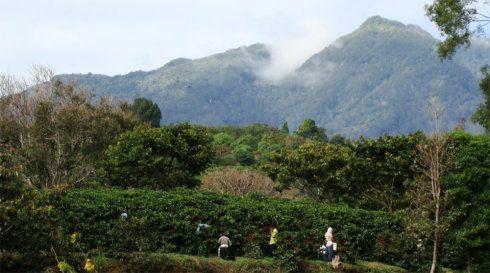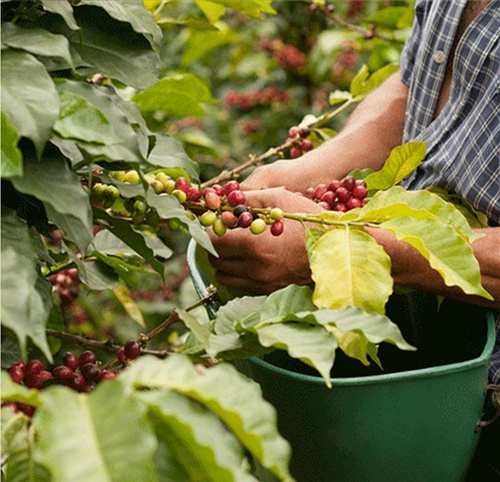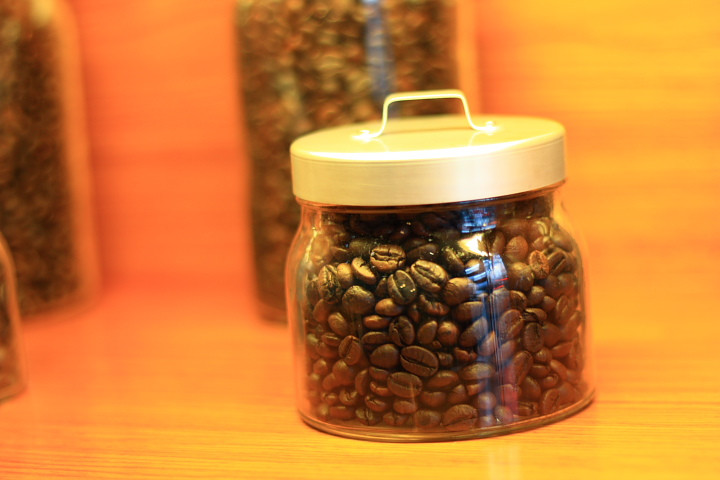Where can I buy coffee beans online? Where to buy coffee beans? Ethiopia Yega Shefi Kocher G2
1. When buying beans online, pay attention to the production date, shelf life, packaging seal, roasting degree of coffee beans, type of coffee beans, and your utensils to determine what beans you want. If you use blue mountain beans to make ESP, it is indeed a more unconventional way, but it is also too unprofessional and expensive, and the taste is not very good.
Beans with a production date of at least half a year.
Coffee beans from the roast are generally bought medium and deep roast, the latter suitable for MOCHA and ESP, the former suitable for siphon, French pressure, flannel, filter and so on.
Coffee beans are divided into caffeinated beans and decaffeinated beans according to their caffeine content. This refers to the caffeine content, the former general caffeine content of 2.5% of the latter general content of 0.05% of decaf coffee domestic see more is ILLY decaf coffee.
Coffee beans are divided into single beans and mixed beans from production.
Single item refers to beans from a single producing area, such as Blue Mountain or Colombia, which are beans from a producing area, that is, a bag full of beans from Colombia. Please be careful when buying this online. Domestic brands cannot have single beans. Domestic beans sell cheap, from the price can be seen, a pack of 250g will not exceed 50 yuan, but the package says what blue mountain, mantining, Colombia and so on, that is baked beans and then add spices to make that flavor beans.
Bean blending is when beans from multiple regions are mixed together for baking.
2. Which outlets are cheap and beautiful?
I'm not a coffee bean merchant, so I can't market myself. But in my opinion, Taobao has a coffee workshop, beans are still very fresh, and then ask more, more comparison. Of course, buying beans to choose merchants, logistics and service attitude are very important.
Country: Ethiopia Fiscal year: 2003
Grade: G2
Production area: Yejia Xuefei
Degree of baking: Light baking
Treatment method: washing
Breed: Native species
Flavor: Jasmine, lemon, bergamot, honey, black tea
Kocher is located 25 kilometers southeast of Ethiopia, a small production area, is a rich coffee production area, but also one of the three famous micro-production areas of Yejia Shefi, local residents about 100,000 people, coffee beans as the main source of income, this production area processing equipment is very advanced. Coffee Review rated Kocher's beans 94 points.
There are eight major coffee producing regions in Ethiopia: Nekempte(Lekempti)Gimbi Kimbi, Limu Limu, Illubabor Ibedo, Djimma, Harrar Harrar, Teppi/Bebeka, Sidamo Sidamo, Yirgacheffe is located in Sidama administrative region of Ethiopia in Africa, and Yirgacheffe belongs to a smaller area within Sidama.
Yerga Sherphine itself is a small town with a population of about 20,000. The three neighboring small producing areas Wenago, Kochere and Gelena Abaya are also classified as Yerga Sherphine because the flavor of coffee produced is almost identical to Yerga Sherphine. Yerga Coffee is culturally and geographically similar to its neighbors, but Yerga Coffee seems to be blessed with exceptional conditions. Top quality Yerga Coffee has floral, bright citrus fruit, lemon notes and silky soft taste.
Kochere Kochere is located in south-west Ethiopia, about 25 miles north of the famous town of Yegachefi, and its production model is based on local smallholder farmers sending batches of output to cooperatives for centralized processing. Chalalacktu village has about 100,000 people who depend on coffee for their livelihood, and related production activities have become their main source of income. Due to the income from coffee production, the local living standard is much better than that of many Ethiopian villages, and there are complete health facilities, higher schools, etc. Advanced processing equipment allows Kochere coffee to perform at a high level in the washed field, with molasses and citrus complex tones clean and sweet

Important Notice :
前街咖啡 FrontStreet Coffee has moved to new addredd:
FrontStreet Coffee Address: 315,Donghua East Road,GuangZhou
Tel:020 38364473
- Prev

How can Yega Ficochel of Ethiopia buy good coffee beans online
1. When buying beans online, you should pay attention to the production date, shelf life, packaging and sealing, the roasting degree of coffee beans, the types of coffee beans, and your utensils to determine what kind of beans you want. If you use blue mountain beans to make ESP, it is indeed a maverick way, but it is also too unprofessional and expensive, and the taste is not very good. The production date must be at least
- Next

How can Kenyan Coffee AA buy good Coffee beans what do you need to pay attention to when buying coffee beans online?
1. When buying beans online, you should pay attention to the production date, shelf life, packaging and sealing, the roasting degree of coffee beans, the types of coffee beans, and your utensils to determine what kind of beans you want. If you use blue mountain beans to make ESP, it is indeed a maverick way, but it is also too unprofessional and expensive, and the taste is not very good. The production date must be at least
Related
- What documents do you need to go through to open a coffee shop? coffee shop coffee shop certificate processing process
- How to purchase Coffee beans in small Cafe how to choose a suitable supplier for domestic Coffee supply Company
- How to drink Starbucks Fragrance White Coffee? how to make Australian White Coffee? what Italian coffee beans are recommended?
- The Story of Flora Coffee: the name of Flora Coffee Bean and the implication of the Flowers on Florna Coffee
- How much does a cup of coffee cost? How much is the profit of a cup of coffee? What is the profit of the coffee shop in a year?
- Yunnan small Coffee, known as "fragrant Coffee", introduces the characteristics of Alpine Arabica Coffee producing areas in Yunnan, China
- 2023 latest Starbucks full menu price list how much is a cup of Starbucks coffee what is better to drink the most popular hot and cold drinks recommended
- Starbucks different kinds of Coffee Price list Starbucks menu 2023 Top Ten Best drinks in Starbucks
- Starbucks Spring praise Comprehensive matching Coffee Bean theme Story Packaging implication and taste description
- The cost of a cup of coffee latte American coffee cost price and selling price

